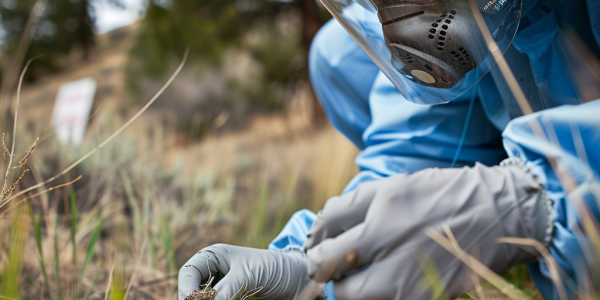Health Experts Clarify ‘Australian Flu’ as Seasonal Virus Amid Flu Season Concerns
As the flu season begins, health experts clarify that the ‘Australian flu’ is simply a reference to the seasonal H3N2 virus, not a new threat. With vaccination campaigns underway, officials emphasize the importance of flu shots to prevent severe illness. Understanding flu symptoms and effective treatments is crucial for managing this year’s flu season.
Discover the Health Benefits of Okra Water with Honey and Lemon
Discover the health benefits of okra water infused with honey and lemon. This refreshing drink enhances cognitive function, supports mood regulation, promotes eye health, aids digestion, improves skin health, and more. Incorporate this nutritious beverage into your daily routine for a natural boost to your well-being.
Weekly Bulletin Reveals Respiratory Virus Trends in Pacific Islands
The Pacific Syndromic Surveillance System’s latest bulletin reveals key trends in respiratory viruses across Pacific Island Countries for the week of October 21-27, 2024. Significant fluctuations in Influenza-like Illness (ILI), Severe Acute Respiratory Illness (SARI), and COVID-19 cases were reported, highlighting health challenges and the importance of ongoing surveillance for public health authorities.
Navigating Physical Changes in Your 40s: Embracing Strength and Resilience
As individuals enter their 40s, they face significant physical changes, including a decline in muscle strength and increased injury risk. This article explores the common lower-body issues that arise during this decade, the impact of hormonal changes, and effective strategies like strength training and hormone therapy to maintain health and fitness. Understanding these changes is crucial for navigating the aging process and enhancing quality of life.
Medicaid Cuts Threaten Access to Opioid Addiction Treatment for Millions
Recent changes to Medicaid have significantly impacted individuals battling opioid addiction, like Stephanie from Florida, who faced the loss of her essential methadone treatment. With over 25 million Americans losing Medicaid coverage since the end of pandemic protections, the urgent need for continuous access to addiction care has never been more critical. As healthcare policies evolve, the intersection of treatment access and public health remains a pressing concern for communities and policymakers alike.
Rising Colon Cancer Rates Among Younger Americans: The Urgent Need for Awareness and Screening
Recent research reveals a concerning rise in colon cancer rates among younger Americans aged 20 to 54, with deaths increasing nearly 1% since 2005. This highlights the urgent need for healthcare professionals to be vigilant in diagnosing colorectal cancer, particularly as symptoms like iron deficiency may indicate higher risks. Early detection and proactive health measures are essential to combat this alarming trend.
Study Links Type 2 Diabetes Treatment to Increased Colorectal Cancer Risk
A recent study published in BMC Gastroenterology reveals a significant link between Type 2 diabetes (T2D) and colorectal cancer (CRC), particularly concerning the use of sulfonylureas. The research indicates that while T2D may initially seem to increase CRC risk, sulfonylurea usage shows a consistent association with higher CRC likelihood. These findings underscore the need for healthcare providers to reassess diabetes treatment plans and emphasize regular CRC screenings for patients with T2D.
Link Between Kidney Disease and Increased Stroke Risk Revealed
Recent studies reveal a concerning link between kidney problems and increased stroke risk, highlighting that chronic kidney disease (CKD) significantly raises the likelihood of strokes. Experts emphasize the importance of managing metabolic risk factors like hypertension and obesity to mitigate this risk. Proactive lifestyle changes can lead to better health outcomes for those affected by CKD and metabolic syndrome.
Boulder County Reports First Case of Tularemia in 2024
Boulder County, Colorado, has reported its first case of tularemia for 2024, raising awareness about this rare insect-borne disease. Health officials urge residents to take precautions against wild animals and insect bites to prevent infection. Symptoms include fever, chills, and respiratory issues. Stay informed and consult healthcare providers if exposed.
Innovative Study Combats Childhood Obesity with Digital Health Tools
Recent research published in the Journal of the American Medical Association reveals a groundbreaking approach to combating childhood obesity. The Greenlight Plus study, conducted by experts at Vanderbilt University Medical Center, combines traditional health behavior counseling with digital health literacy tools, showing significant improvements in preventing obesity among children. This innovative method emphasizes early intervention and the use of technology to empower families, highlighting its potential to foster healthier growth trajectories in children.










